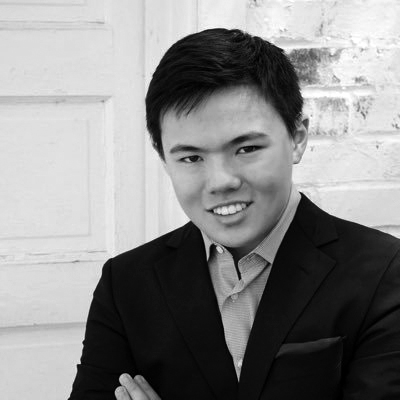By Darren Johnson and Felicia Reich
Campus News
Whitman Ochiai, a freshman at Cornell University double majoring in Economics and Data Science, runs Money Ed, a podcast “all about financial literacy for young people.” Money Ed has been featured in the New York Times and Yahoo News.
Increasingly, the question young people are asking themselves, and the problem Ochiai is looking to answer is, “How good is school if they don’t teach you how to do your taxes?” Campus News sat down with Ochiai to discuss his podcast and his views on whether or not he thinks higher education is worth it.
Traditionally, people look at the dollar amount of college in terms of tuition and debt. Ochiai encouraged people to consider “what you miss out on if you do or don’t do it.”

When asked what students could be doing instead of college, he replied, “One of the things people can be doing is go to trade school, or they could get a job earlier.”
“There have been some studies that indicate starting a job earlier might be better for certain people when it comes to ultimate financial outcomes. But, at the same time, that’s not necessarily a consistent thing. …
“When it comes to thinking about your own future, those [either a trade school or a vocation school, or taking that time to start your career slightly earlier and hopefully buy yourself a little more time to start earning] are the two big things.”
Both, however, require a level of self-discipline that many young people are yet to establish.
When asked about this, Ochiai suggested those people may not do well in college anyway.
However, while some people lack self-discipline, Ochiai noted, others may lack access to jobs and opportunities.
“You don’t just need self-discipline to build a career. You need self-discipline to be in college… If it really is a self-discipline problem, I don’t think going to college is going to change that.”
People often wonder about the income earning potential of those with degrees and those without, especially in those four years when people who get to work right away begin to make money.
Ochiai weighed in: “In [the MoneyEd podcast] we often talk about consistent long-term gains being better than risky short-term gains. College is a very consistent option. You can consistently improve your ultimate outcomes. In theory, you can get lucky in the short-term. It’s just not something you want to bank on.”
He went on to describe the common misconception he thinks people share when deciding on the value of college. “Students,” he explained, “when they’re thinking about whether or not college is worth it, oftentimes don’t think about how much they’re going to make depending on their own major. …
“One of the big things we’re not talking about when it comes to student debt is whether or not the amount of money you’re going to make extra is going to be worth the amount you pay in [the cost of tuition]. Oftentimes that means looking at the major.”
A student’s major is less of a determining factor, according to Ochiai, than what the student wants to do with it. “It depends what your goals are and how you want your career to progress.”
Ochiai emphasized, “College can probably enhance anything you go into.”
For young people, it can be hard to imagine and plan for the future. Without the perspective that age and life experience afford, they may not see how their natural talents can lead to careers.
“College is fantastic for giving people that direction,” Ochiai responded.
Community college, particularly for their vocational and workplace education programs, is a great option for those who have a clear picture of what they want to do, Ochiai suggested, while others that may want to explore their interests and career options may be better suited to a traditional four-year college.
Mentors also play a large role in a person’s career success. For students, that mentor is likely a professor. For students and non-students alike, Ochiai recommended a guerilla approach to finding a mentor.
“I found mentors by sending random emails,” said Ochiai. In those emails, he introduces himself and writes that he would love to learn more about the person’s work.
“That’ll work surprisingly well, at least in terms of meeting people who are excellent at what they do.”
When weighing the cost of college, Ochiai encouraged people to keep an open mind, particularly in terms of college debt. “The fact that college debt is very ‘persistent’ has not necessarily become a saying due to the fact that it’s ridiculously expensive. It’s not going to be the debt that people prioritize because you can write it off and student debt plans, in general, are pretty long-term.”
Money Ed, now in its third year, releases new episodes every two weeks. On his podcast, Ochiai interviews finance professionals about their jobs and the money management advice they have for young people.







Facebook Comments